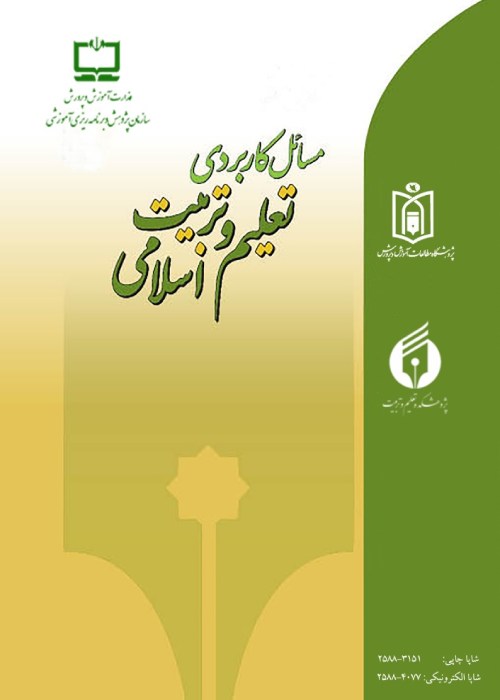Model of Environmental Etiquette and Explaining the Environmental Education Objectives Based on Islamic Perspective of "Mother Earth"
The present study was conducted to introduce the Islamic perspective of Mother Earth from the point of view of the beloved Prophet of Islam, Mohammad and Infallibles (peace be upon them), identifying the components of Environmental Etiquette and introducing the relevant model and explaining the goals, aims and objectives of Environmental Education, based on this view. The study was conducted in a qualitative and quantitative manner by purposeful sampling and analysis of relevant documents from the statistical community including the Holy Quran, narrative books including the Noble Book of Sahifah Al-Sajadiyyah, Osool Al-Kafee, Mafatih Al-Hayat, and valid articles. Themes analysis was done through in-depth study and analysis, coding and interpretation and simultaneous inference of data and classification of components in a deductive manner. Examples of politeness to mother were extracted from the Islamic perspective and accordingly, examples of environmental etiquette were deduced and classified into seven components. Based on the results of the qualitative section, a 5-point Likert scale questionnaire was developed. The content validity of the questionnaire was determined by experts, and its reliability was determined by Cronbach's alpha to be at 0.908. The level of agreement of experts in the fields of Islamic sciences, education and environmental education, with the proper relationship between environmental etiquette examples and components was measured by this questionnaire based on 30 responses. According to the findings, the components of environmental etiquette were as follows: Respect, Benevolence, Adaptability, Support, Compassion, Gratitude, and Satisfaction. Finally, the model of environmental etiquette and environmental education goals were depicted from the Islamic perspective of Mother Earth. The need to pay attention to the environmental ethics, character and etiquette in formal education, with special attention to the differences between these three concepts, as well as the design, implementation and validation of educational models aimed at expanding the education of environmental ethics, character and etiquette were emphasized.
- حق عضویت دریافتی صرف حمایت از نشریات عضو و نگهداری، تکمیل و توسعه مگیران میشود.
- پرداخت حق اشتراک و دانلود مقالات اجازه بازنشر آن در سایر رسانههای چاپی و دیجیتال را به کاربر نمیدهد.



